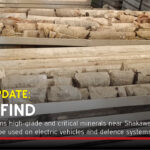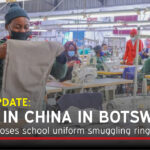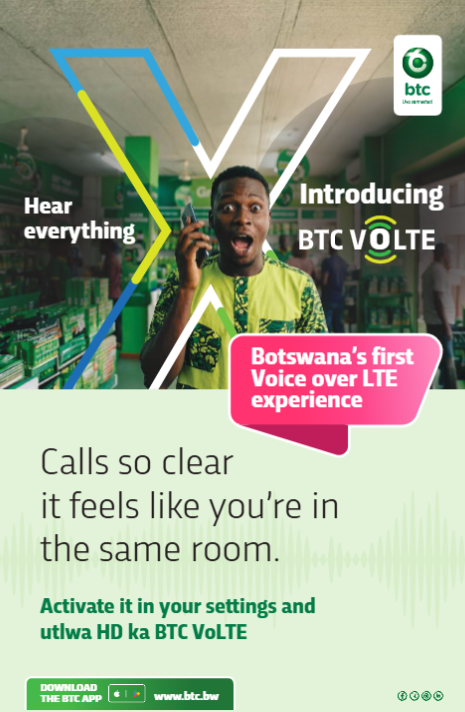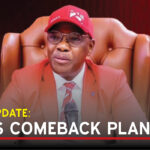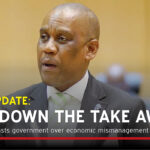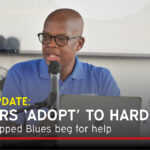Shining a light on Sonny’s CEDA crusade
Following his much-talked-about appointment last October as Citizen Entrepreneurial Development Agency (CEDA) Ambassador, Sonny Serite has completed his countrywide tour of CEDA-funded projects.
In this interview with Voice Money’s KABELO ADAMSON, Serite outlines what the tour sought to achieve and the challenges faced by these enterprises.

Q. How many businesses did you cover?
I have visited and profiled 148 businesses.
Q. And what would you say were the key lessons gained from the tour?
The realization that Batswana are an enterprising nation; they just need support from fellow Batswana!
Q. I take it some of the businesses are start-ups, what type of challenges do they face?
I think the biggest challenge is market penetration.
Start-up businesses are still struggling to formulate marketing concepts that match pound for pound with their competitors who are mostly foreign-owned and already well established.
Local businesses need to work extra hard to convince the local market that their products and services are of the same quality as those from outside.
It was painful to learn that the local market shunned electronic gadgets that are manufactured locally while Angola jumped for them.
It was only after South Africa also started to buy these gadgets that the local market became receptive.
So yes, the challenge here is having to convince our people that locally manufactured products are as good as those from outside.
Q. What is the biggest misconception about CEDA?
The biggest misconception, which really deserves to be described as a lie, is that CEDA benefits a few elite or people in the corridors of power.
I found that to be completely untrue because the majority of all the businesses I visited, and they were random, are owned and run by ordinary Batswana with not even the slightest association to the so-called privileged surnames.
Q. Those looking to access CEDA Funding are often put off by the application process, complaining that it’s unnecessarily cumbersome. Your thoughts?
While I can readily admit that the process is not as easy as walking into a loan shark for a quick buck, I wouldn’t say it is cumbersome because that would mean the process is complicated and difficult to fulfill.
What I can agree to is that the process is thorough but doesn’t require anything out of this world.
You must remember that CEDA disburses loans through public funds and it is important to do all due diligence before we dole out public funds.
We want to make sure all the legal requirements are met before we give out the money.
I don’t think this is peculiar to CEDA as I want to believe it happens with all financial institutions.
Q. Does CEDA have any preferred businesses that it funds?
CEDA funds all businesses across all sectors.
If it is feasible and viable, then CEDA will finance it for as long as it is legally permissible to operate under the laws of the country.
Q. In the past year, how much has the agency spent on funding local businesses?
I will have to liaise with the relevant officers at the Head Office to give you the accurate figure but what I can tell you from the top of my head is that since the launch of the Revised Guidelines in July 2020, CEDA has funded over 4, 500 projects worth over P200 million.
Q. Why do you think some of the funded businesses collapse?
Financial mismanagement and lack of innovative staying-power.
It can be challenging to be a businessperson in our African culture because of the ‘black tax’.
Black tax is described as income that we black professionals give to our families to support them.
You will find that when you run a General Dealer at your home village, the expectation is that your family members, including the extended family members, must not go hungry because their relative runs a shop full of food.
And yes, some businesses fail genuinely due to unforeseen circumstances. A good example would be the abrupt arrival of Coronavirus.
Q. In your interaction with these businesses, what is the one common challenge that they face?
Convincing fellow Batswana that their products and services are of good quality.
Many of them have lamented about how Batswana don’t seem to believe in their fellow countrymen.
We tend to believe it is of good quality only when it comes outside the country.
Q. There was quite a lot of noise surrounding your appointment as CEDA ambassador. Do you feel you have proven the haters wrong?
Well, the only talks I cared about were the ones between me and CEDA and I’m happy that I have delivered beyond their expectation.
Initially, I was to cover 55 projects, that is five projects from each of the 11 CEDA branches but as I have already mentioned, I ended up covering 148.
What people need to know is that CEDA did not handpick me for this job.
I approached CEDA with an unsolicited proposal and they were amenable to it.
I told them look, I think as the media we have implanted this misconception about CEDA and I’m willing to go around the country to showcase the truth and demystify the negative perceptions about CEDA.
I didn’t set out to prove those who hate me wrong.
I just set out to gather the CEDA testimonies, as told by the beneficiaries.
Q. Now that the tour has come to an end, does this also signal the end of your role as CEDA ambassador?
The tour is over but my role as CEDA Ambassador continues.
I will be embarking on other assignments that promote the CEDA brand, products, and services.
I would like to thank the CEDA CEO Thabo Thamane for believing in my capabilities and entrusting me with his brand.

I want to thank the entire CEDA family across the branch network for their support and for making my job a lot easier.
If the KeMogaka Tour has been a success, it was all because of their devotion and support.




